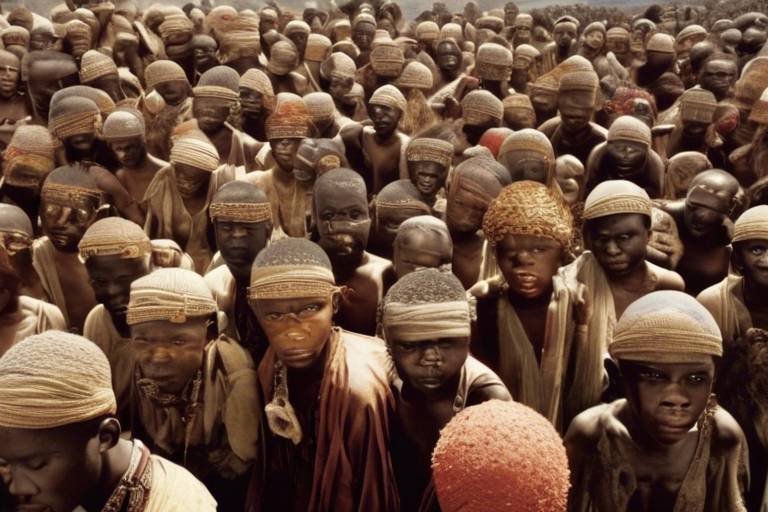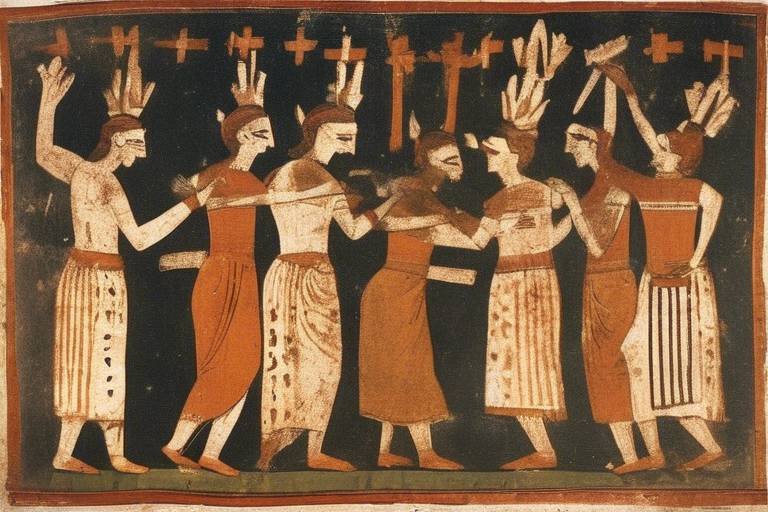The Impact of Globalization on Indigenous Cultures
Globalization has become a powerful force shaping the world we live in today, impacting indigenous cultures in profound ways. The interconnectedness brought about by globalization has exposed indigenous communities to external influences, leading to a complex interplay between tradition and modernity. As borders blur and communication networks expand, indigenous cultures find themselves at a crossroads, navigating the challenges of preserving their unique identities while adapting to the changing global landscape.
One of the most significant impacts of globalization on indigenous cultures is the phenomenon of cultural appropriation. As traditional practices, symbols, and art forms are commodified and misrepresented by mainstream society, the authenticity and significance of indigenous cultural heritage are often diluted. This misappropriation not only distorts the true essence of indigenous traditions but also perpetuates harmful stereotypes that undermine the cultural integrity of indigenous communities.
Moreover, the rapid pace of globalization has led to a loss of traditional knowledge among indigenous peoples. As younger generations are increasingly influenced by modern lifestyles and educational systems, the transmission of ancestral wisdom and practices is at risk of being disrupted. The erosion of traditional knowledge not only threatens the continuity of indigenous cultures but also diminishes the resilience and sustainability of indigenous communities in the face of external pressures.
Furthermore, the environmental impact of globalization on indigenous lands and resources is a pressing concern. The relentless pursuit of economic development often comes at the expense of indigenous territories, leading to environmental degradation and ecological imbalance. Indigenous cultures that have long maintained a harmonious relationship with their natural surroundings are now facing threats to their way of life as industrial activities encroach upon their lands.
Language endangerment is another consequence of globalization that poses a significant challenge to the preservation of indigenous cultures. The dominance of global languages as mediums of communication marginalizes indigenous languages, placing them at risk of extinction. With each language lost, a unique worldview and cultural heritage are also at stake, highlighting the urgent need to protect linguistic diversity among indigenous communities.
Despite these challenges, many indigenous communities are actively engaged in cultural revitalization efforts to reclaim and preserve their heritage. Through initiatives that promote language revitalization, traditional arts, and knowledge transmission, indigenous peoples are asserting their cultural identity and resilience in the face of globalization. These efforts not only strengthen the bonds within indigenous communities but also foster a sense of pride and belonging among future generations.
Indigenous rights advocacy has emerged as a crucial response to the negative impacts of globalization on indigenous cultures. Movements advocating for the recognition of indigenous rights, self-determination, and cultural autonomy are gaining momentum on the global stage. By amplifying the voices of indigenous peoples and demanding respect for their rights and traditions, these movements seek to address the systemic injustices perpetuated by globalization.
Building collaborative partnerships between indigenous communities, governments, and non-governmental organizations is essential in mitigating the adverse effects of globalization. By fostering mutual respect, understanding, and cooperation, these partnerships can support the empowerment and resilience of indigenous cultures in the face of external pressures. Through shared initiatives and dialogue, stakeholders can work together to protect the rights and well-being of indigenous peoples while promoting cultural diversity and inclusivity.

Cultural Appropriation
The phenomenon of has become prevalent in the context of globalization, where indigenous cultural elements are often adopted and misrepresented by mainstream society. This appropriation can lead to the erosion of cultural authenticity and significance, as sacred symbols, traditional attire, and spiritual practices are commercialized or used out of context. The misappropriation of indigenous culture can result in the distortion of its meanings and the perpetuation of harmful stereotypes, undermining the value and respect owed to these cultures.
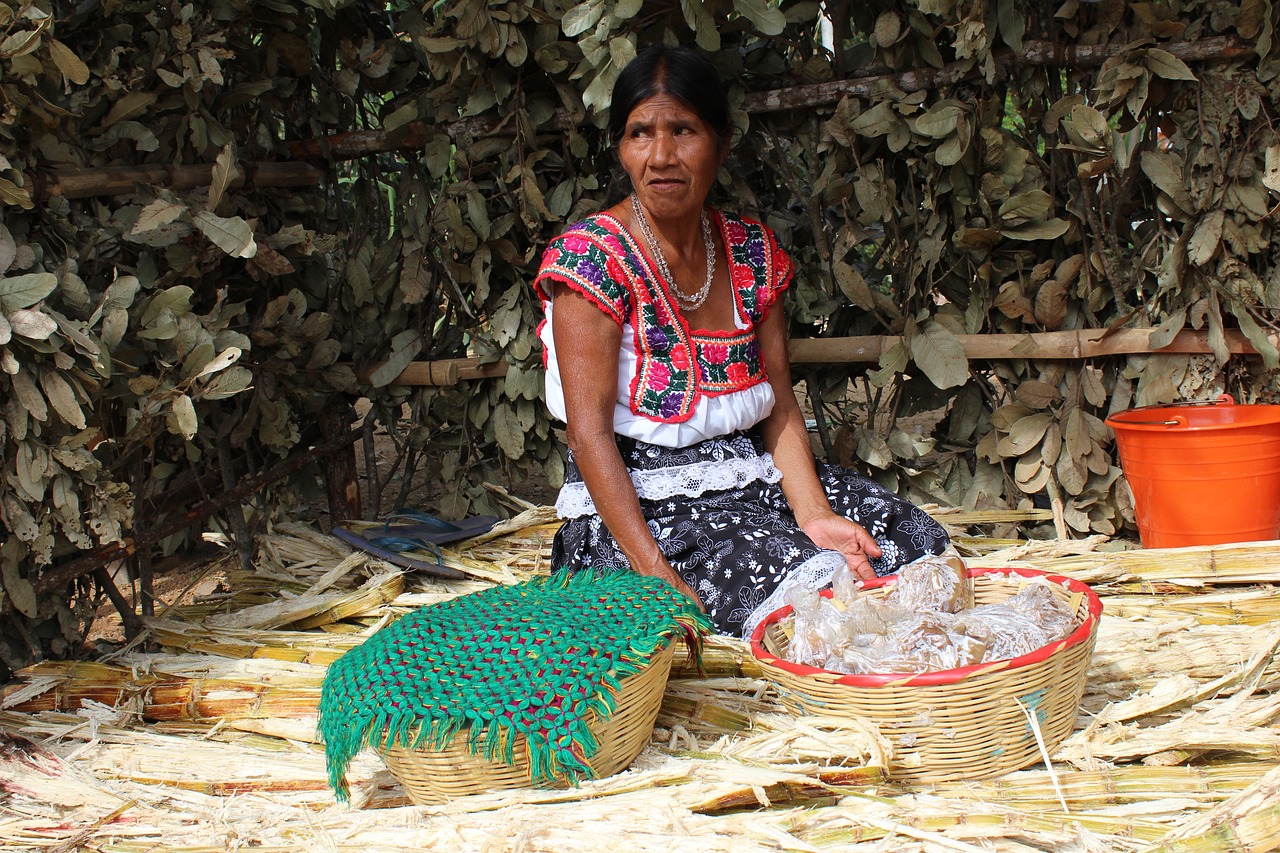
Loss of Traditional Knowledge
Globalization has brought about significant challenges for indigenous communities, particularly in terms of preserving their traditional knowledge and practices. The rapid spread of modernization and external influences has resulted in a gradual erosion of ancestral wisdom that has been passed down through generations. As globalization continues to reshape societal norms and values, many indigenous cultures are facing the risk of losing vital aspects of their heritage that define their identity and connection to the land.
One of the key factors contributing to the loss of traditional knowledge among indigenous communities is the shift towards more modern and Westernized lifestyles. As younger generations become increasingly exposed to global trends and technologies, there is a growing disconnect from the traditional ways of life that have sustained indigenous cultures for centuries. The transmission of essential skills, rituals, and oral histories is being overshadowed by the allure of mainstream culture, resulting in a gradual decline in the practice and preservation of traditional knowledge.
Furthermore, the impact of globalization on indigenous education systems has also played a significant role in the loss of traditional knowledge. As formal education becomes more standardized and focused on mainstream curricula, there is often limited space for incorporating indigenous perspectives and teachings. This lack of recognition and support for indigenous knowledge systems in educational settings further marginalizes traditional practices and diminishes their importance in the eyes of younger generations.
Additionally, the commodification of indigenous culture in the global marketplace has led to the commercialization of traditional knowledge, further undermining its authenticity and value within indigenous communities. The appropriation of sacred symbols, rituals, and traditional medicines for profit has not only stripped these practices of their cultural significance but has also perpetuated harmful stereotypes and misconceptions about indigenous peoples.
In response to these challenges, many indigenous communities are striving to revitalize their traditional knowledge through community-led initiatives and cultural preservation efforts. By reclaiming and revitalizing ancestral practices, languages, and belief systems, indigenous peoples are actively working to ensure the continuity of their cultural heritage in the face of globalization's impact. Collaborative partnerships with external organizations and governments are also playing a crucial role in supporting these revitalization efforts and promoting the recognition and respect of indigenous knowledge systems.
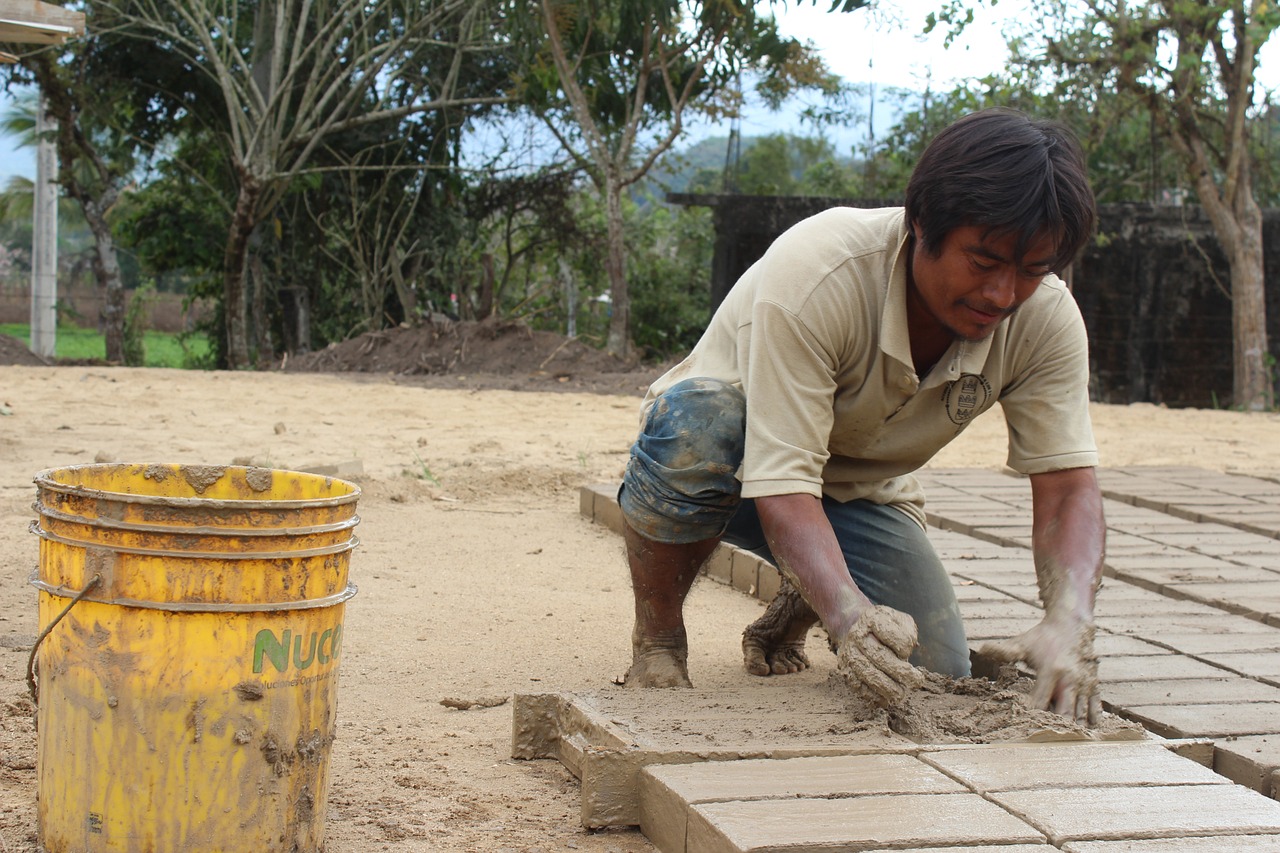
Environmental Impact
Globalization has had a significant environmental impact on indigenous cultures, as the pursuit of economic interests often comes at the expense of the natural environment that indigenous communities rely on for their livelihoods and cultural practices. The exploitation of indigenous lands and resources for profit has led to deforestation, pollution, and habitat destruction, threatening the delicate balance between humans and nature that is central to indigenous ways of life.
Moreover, the extraction of natural resources for global markets has not only resulted in environmental degradation but has also disrupted the spiritual and cultural connections that indigenous peoples have with their ancestral lands. The loss of biodiversity and disruption of ecosystems due to industrial activities have further marginalized indigenous communities, pushing them to the brink of cultural and environmental extinction.
Indigenous cultures are deeply intertwined with the natural world, viewing the environment as a sacred entity that must be respected and protected. However, the forces of globalization have often disregarded these values in favor of short-term economic gains, perpetuating a cycle of environmental destruction that undermines the resilience and sustainability of indigenous cultures.
In response to these challenges, many indigenous communities have been at the forefront of environmental conservation efforts, advocating for sustainable resource management practices and asserting their rights to protect their territories from exploitation. Collaborative partnerships between indigenous peoples, governments, and environmental organizations have played a crucial role in promoting conservation initiatives that respect indigenous knowledge and values, fostering a more harmonious relationship between humans and the environment.

Language Endangerment
Globalization has brought about a significant threat to the diversity of indigenous languages, leading to the endangerment of linguistic heritage among indigenous communities. The widespread use and dominance of global languages in various spheres of life have marginalized indigenous languages, pushing them towards the brink of extinction. As younger generations prioritize learning dominant languages for economic opportunities and social integration, the transmission of indigenous languages from elders to youth has dwindled, resulting in a loss of linguistic fluency and cultural identity.
Furthermore, the lack of institutional support and resources for the preservation and promotion of indigenous languages exacerbates the challenges faced by these communities. Without adequate documentation and educational initiatives to revitalize and sustain indigenous languages, the rich tapestry of linguistic diversity that encapsulates the essence of indigenous cultures is at risk of fading away. The erosion of indigenous languages not only signifies a loss of communication tools but also signifies a disconnection from ancestral knowledge, oral traditions, and cultural practices deeply intertwined with language.
In the face of language endangerment, some indigenous communities have initiated efforts to revitalize and reclaim their languages through language revitalization programs, community language schools, and intergenerational language transmission projects. These initiatives aim to instill pride in indigenous languages, foster language proficiency among youth, and create spaces for language use in everyday life. By revitalizing indigenous languages, these communities strive to preserve their cultural heritage, strengthen cultural identity, and resist the homogenizing forces of globalization that threaten linguistic diversity.

Community Displacement
Community displacement is a distressing consequence of globalization that has significantly impacted indigenous populations around the world. As development projects and economic activities expand, indigenous communities often find themselves forced to leave their ancestral lands, disrupting their social structures, cultural practices, and spiritual connections to the land. The pursuit of profit and economic growth frequently takes precedence over the rights and well-being of indigenous peoples, leading to a sense of loss, dislocation, and marginalization.
For many indigenous communities, displacement goes beyond physical relocation; it represents a rupture in their relationship with the environment and a threat to their cultural survival. The deep-rooted connection between indigenous cultures and their traditional territories underscores the profound impact of community displacement on their identity, heritage, and way of life. The loss of land not only affects the material sustenance of indigenous peoples but also undermines their spiritual beliefs and sense of belonging.
Moreover, community displacement often results in the fragmentation of indigenous communities, dispersing families and disrupting social cohesion. The breakdown of communal ties and support networks can lead to increased vulnerability and challenges in maintaining cultural practices and transmitting traditional knowledge to future generations. The loss of collective memory and shared experiences further exacerbates the trauma of displacement, creating barriers to cultural continuity and resilience.
Efforts to address community displacement and its consequences require a holistic approach that acknowledges the interconnectedness of indigenous peoples with their lands, cultures, and communities. Collaborative initiatives that prioritize the rights and voices of indigenous communities are essential in advocating for land rights, cultural preservation, and sustainable development practices that respect indigenous worldviews and values.
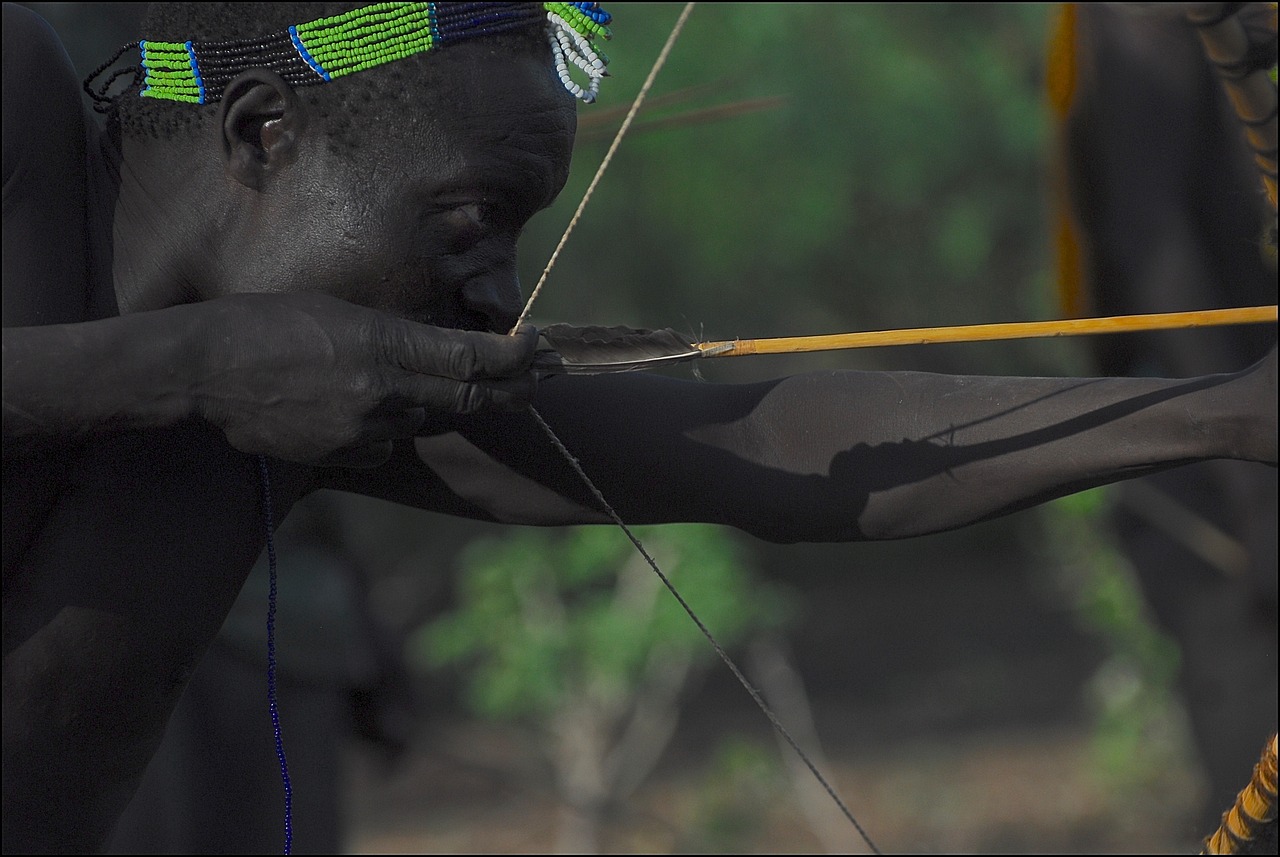
Cultural Revitalization Efforts
Cultural revitalization efforts play a crucial role in the preservation and promotion of indigenous cultures in the face of globalization's challenges. These efforts encompass a wide range of initiatives aimed at reclaiming and revitalizing traditional practices, languages, and knowledge systems that are integral to the identity of indigenous communities. Through cultural revitalization, indigenous peoples strive to reconnect with their heritage, strengthen community bonds, and pass down ancestral wisdom to future generations.
One key aspect of cultural revitalization is the revival of traditional ceremonies and rituals that hold deep cultural significance. These ceremonies serve as a means of transmitting cultural values, beliefs, and practices, fostering a sense of belonging and continuity within indigenous communities. By revitalizing these rituals, indigenous peoples reaffirm their cultural identity and resilience in the face of external pressures.
Language revitalization efforts also play a vital role in cultural revitalization, as language is a fundamental component of indigenous identity and heritage. Many indigenous communities are actively working to preserve and revitalize their languages through language immersion programs, educational initiatives, and intergenerational language transmission. By revitalizing indigenous languages, communities are able to reclaim their linguistic heritage and strengthen cultural pride and cohesion.
Furthermore, cultural revitalization efforts often involve the documentation and preservation of traditional knowledge and practices. Through oral histories, storytelling, and community-led projects, indigenous peoples are able to safeguard their cultural heritage for future generations. These initiatives not only serve to protect traditional knowledge from being lost but also contribute to the overall resilience and empowerment of indigenous communities.
In addition to internal efforts within indigenous communities, external partnerships and collaborations play a significant role in supporting cultural revitalization initiatives. By engaging with governments, non-governmental organizations, and academic institutions, indigenous communities can access resources, expertise, and support to further their cultural revitalization goals. Collaborative partnerships also help raise awareness about the importance of indigenous cultures and foster greater respect and understanding among the wider society.

Indigenous Rights Advocacy
Indigenous rights advocacy has become a crucial movement in response to the negative impacts of globalization on indigenous cultures. These advocacy efforts aim to raise awareness about the unique challenges faced by indigenous communities and to promote the recognition of their rights, self-determination, and cultural autonomy. By highlighting the importance of preserving indigenous languages, traditions, and lands, advocates seek to empower indigenous peoples to assert their cultural identity and protect their heritage from further erosion.
One of the key aspects of indigenous rights advocacy is the push for legal recognition and protection of indigenous rights at both national and international levels. Through lobbying, protests, and legal challenges, advocates work to ensure that indigenous communities are granted the rights to their ancestral lands, resources, and self-governance. This advocacy also extends to promoting respect for indigenous knowledge systems and traditional practices, which are often marginalized or exploited in the face of globalization.
Furthermore, indigenous rights advocacy involves fostering partnerships and alliances with other social justice movements to amplify indigenous voices and address systemic inequalities. By collaborating with environmental activists, human rights organizations, and governmental bodies, advocates can advocate for policies that respect indigenous rights and promote sustainable development that benefits both indigenous communities and the environment.
Overall, indigenous rights advocacy plays a vital role in challenging the dominant narratives of globalization that often marginalize and disempower indigenous peoples. By advocating for the recognition of indigenous rights and promoting cultural autonomy, advocates strive to create a more inclusive and equitable world where indigenous cultures can thrive and flourish.

Collaborative Partnerships
Collaborative partnerships play a crucial role in mitigating the adverse effects of globalization on indigenous cultures. By fostering cooperation between indigenous communities, governments, and non-governmental organizations, these partnerships aim to support the empowerment and resilience of indigenous cultures in the face of external pressures and challenges. Through collaborative efforts, stakeholders can work together to address issues such as environmental degradation, cultural appropriation, and community displacement, ensuring that the rights and well-being of indigenous peoples are respected and protected.
Frequently Asked Questions
- What is cultural appropriation?
Cultural appropriation refers to the adoption of elements from a minority culture by members of the dominant culture, often without understanding or respecting the cultural significance. This can lead to the misrepresentation and commodification of indigenous traditions, eroding their authenticity and meaning.
- How does globalization contribute to the loss of traditional knowledge among indigenous communities?
Globalization introduces modern influences and practices that can overshadow traditional ways of life, leading to a decline in the transmission of ancestral knowledge. The focus on economic development and external influences can disrupt the intergenerational transfer of traditional practices and wisdom within indigenous communities.
- What are the environmental impacts of globalization on indigenous cultures?
The pursuit of economic gain through the exploitation of indigenous lands and resources can result in environmental degradation, affecting the natural ecosystems that indigenous cultures depend on for their livelihoods and cultural practices. This threatens the sustainability and well-being of indigenous communities.
- How can collaborative partnerships help mitigate the adverse effects of globalization on indigenous cultures?
Collaborative partnerships involving indigenous communities, governments, and non-governmental organizations can facilitate the sharing of knowledge, resources, and support systems to address the challenges posed by globalization. By working together, stakeholders can promote cultural empowerment, resilience, and sustainable development for indigenous cultures.







